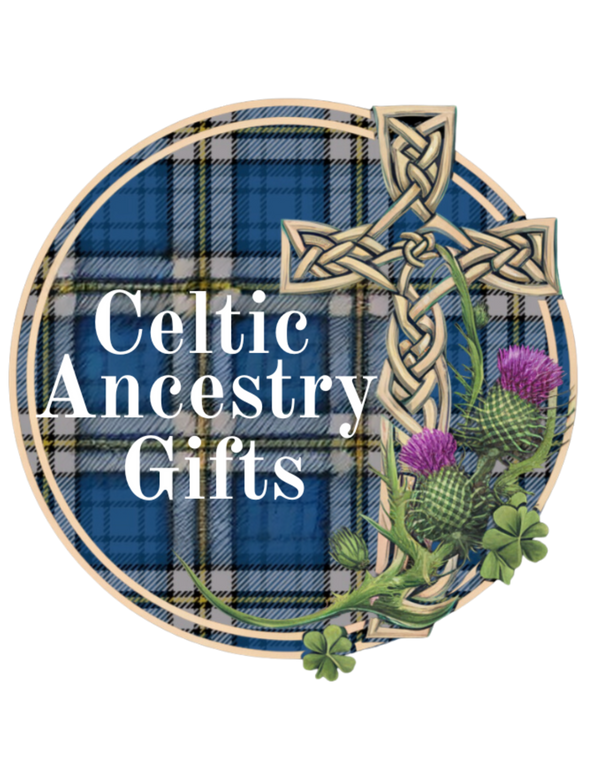
Tracing the Roots: A Deep Dive into the Rich History of the Irish Surname Stephens
Share
The Enduring Legacy: A Comprehensive Exploration of the History of the Irish Surname Stephens
The surname Stephens, a name resonant with history and tradition, offers a compelling narrative that stretches back through centuries of Irish experience. As a patronymic surname, its origins are deeply rooted in the practice of identifying individuals by their paternal lineage, a common method that evolved across many cultures, including Ireland. The journey of the Stephens surname is not merely a linguistic one; it is a story woven from threads of Norman influence, religious significance, migration, and the persistent adaptability of families seeking to establish their identity. This extensive exploration delves into the multifaceted history of the Stephens surname, charting its course from its initial adoption to its enduring presence in the modern world, highlighting its significance in the tapestry of Irish heritage.
Unearthing the Origins: The Name Stephen and its Celtic Embrace
The ultimate etymological root of the name Stephen lies in the ancient Greek word "stephanos," meaning "crown" or "garland." This name achieved profound significance within early Christianity, most notably through Saint Stephen, revered as the first martyr. His martyrdom, as documented in the Acts of the Apostles, made him a pivotal figure in the early Christian church. The veneration of Saint Stephen across Christendom ensured the name's popularity and dissemination throughout Europe, including its eventual adoption and integration into the naming conventions of the British Isles, and subsequently, Ireland. The arrival and spread of Christianity played a pivotal role in the assimilation of names like Stephen, which became common given names among the populace, transcending mere identification to represent religious devotion.
In the Irish context, the surname Stephens typically emerged as a result of Norman settlement and influence, beginning notably from the 12th century onwards. Following the Norman invasion of Ireland in 1169, a significant influx of Norman lords, knights, and their retinues established themselves across various regions of the island. As these Norman settlers integrated into Irish society, they brought with them their own naming traditions, including the widespread patronymic system prevalent in Norman France and England. The given name "Stephen" gained traction among these new arrivals and, through intermarriage and cultural exchange, was also adopted by the indigenous Irish population alike. Consequently, "Stephens" arose as a direct marker of descent – designating an individual as the "son of Stephen." This process of establishing hereditary surnames was gradual but transformative, marking a significant shift from earlier forms of personal identification that were often based on occupation, location, or personal epithets.
Navigating Linguistic Currents: Variations, Anglicization, and Irish Identity
The evolution of the Stephens surname, like many others with origins in the British Isles, is characterized by a fascinating array of variations in spelling and form. These discrepancies are not indicative of different lineages but rather reflect the dynamic nature of language, the practicalities of record-keeping, and the socio-political pressures of different historical periods. Several key factors contributed to these variations over the centuries:
- Phonetic Transcription: In eras with less standardized spelling, particularly before the advent of widespread literacy and formal orthographic rules, names were frequently transcribed phonetically. This meant that a name could be written slightly differently depending on the regional accent of the person giving their name, the personal interpretation of the scribe, or the prevailing dialectal influences at the time of recording.
- Anglicization Policies: Following periods of English dominance and cultural hegemony in Ireland, particularly from the Tudor era onwards, there was often pressure, both overt and subtle, to adopt English naming conventions and spellings. While Stephens is already of non-Gaelic origin, the Anglicization process could still influence its exact spelling or its perceived place within the broader Irish naming landscape. It might have involved standardizing an existing Anglicized form or subtly altering it to conform to English norms.
- Scribal Inaccuracies and Local Dialects: The compilation of historical documents, from parish registers and manorial rolls to census records and legal depositions, was often undertaken by scribes. Human error, fatigue, or varying levels of literacy, coupled with the influence of local dialects on pronunciation, could result in unintentional misspellings or alterations of surnames that were then perpetuated in official records.
- Evolution of Suffixes and Transliteration: The transition from a given name like "Steven" or "Stephan" to the patronymic "Stephens" reflects a common linguistic development where the addition of an "s" or "son" denoted descent. Variations such as "Stevens" also arose within this same patronymic framework, often due to the natural fluidity of phonetic representation. Furthermore, when Irish Gaelic names were anglicized, sometimes patronymic forms were adapted, though Stephens is more directly linked to Norman French/English given names.
These historical linguistic shifts underscore the importance of examining a wider range of spellings when undertaking genealogical research, as an ancestor recorded with the surname "Stevens," "Steevens," or even "Stephensone" may well be part of the same ancestral line. Flexibility and a broad perspective are key to uncovering the full lineage of the Stephens family.
Geographic Footprints: Irish Distribution and Global Dispersion
The geographical distribution of the Stephens surname within Ireland offers vital insights into historical settlement patterns, land ownership, and migration flows that have shaped the Irish demographic landscape. While the name is found across the island, historical records and modern surname distribution data often indicate higher concentrations in certain counties. These areas frequently correlate with regions that experienced earlier or more significant influxes of Norman and English settlers following the invasion, as well as areas of later Protestant settlement during the plantation periods. Counties like Wexford, Kilkenny, and Tipperary, which were among the earliest areas of Norman settlement, often show a notable presence of surnames derived from Norman French origins.
However, the story of the Stephens surname is also intrinsically linked to the broader narrative of Irish emigration, a phenomenon that has profoundly impacted the global demographic landscape. From the 17th century onwards, and accelerating through the 18th, 19th, and 20th centuries, waves of Irish emigration, driven by factors such as famine, political unrest, economic hardship, and the search for opportunity, saw families bearing the Stephens surname participate in these migrations. They carried their name and heritage with them, establishing new branches of the family tree in distant lands. The primary destinations for these emigrants, carrying their name and heritage with them, included:
- North America: Both the United States and Canada became significant havens for Irish immigrants seeking economic stability and religious freedom. The opportunities for land ownership and employment in the burgeoning economies of these nations drew countless families, and the Stephens name is well-represented in the populations of these countries today, often found in communities with strong historical Irish roots.
- The Antipodes: Australia and New Zealand, particularly during the colonial era, attracted a substantial number of Irish settlers who were recruited for labor or sought new beginnings. These journeys were often arduous, involving long sea voyages, but they ultimately established new communities where the Stephens lineage continued to grow and adapt to new environments.
- Great Britain: Due to geographical proximity, shared historical ties, and economic opportunities, migration to England, Scotland, and Wales has been a common pathway for many Irish families throughout history, including those named Stephens. This migration often occurred in cycles, responding to economic booms and busts on both sides of the Irish Sea.
- South Africa: While perhaps a less commonly cited destination than North America or Australia, South Africa also received significant numbers of Irish emigrants, particularly during the 19th century, contributing to the global spread of names like Stephens and their integration into the diverse cultural mosaic of the nation.
This extensive diaspora means that while the Stephens surname is intrinsically linked to Ireland through its historical origins and initial settlement, it is now a truly global phenomenon. Descendants of Irish Stephens families cherish their connection to their heritage, maintaining and celebrating the legacy of the name irrespective of their current place of residence or nationality.
Distinguished Individuals: Contributions Across Diverse Fields
The Stephens surname, while not typically associated with a single ancient Gaelic clan in the same way as some distinctively Irish surnames, has been borne by a remarkable number of individuals who have made significant contributions across a wide spectrum of societal endeavors. The collective achievements of these individuals enrich the historical narrative and broaden the understanding of the Stephens name's impact.
- Political and Legal Spheres: Throughout Irish and British parliamentary history, as well as in local governance, the judiciary, and legal professions, individuals named Stephens have served with distinction. Their contributions have shaped legislation, upheld justice, and influenced the administrative frameworks of their societies, often advocating for rights and reforms.
- The Arts and Humanities: The creative landscape has seen Stephens family members excel in literature, poetry, music, theatre, visual arts, and academia. These individuals have enriched cultural discourse, produced enduring works, and contributed significantly to the artistic and intellectual heritage of Ireland and the wider world.
- Scientific and Academic Pursuits: In the rigorous realms of science, medicine, engineering, and academia, Stephens individuals have emerged as pioneers, researchers, educators, and dedicated scholars. Their work has advanced knowledge, spurred innovation, and contributed to human understanding across numerous disciplines.
- Commerce and Industry: The entrepreneurial spirit has also been a notable characteristic, with Stephens individuals establishing successful businesses, contributing to economic development, and playing key roles in industrial and commercial sectors in both Ireland and their adopted homelands.
- Military Service: Across various conflicts and eras, members of the Stephens family have honorably served in armed forces, demonstrating courage, leadership, and commitment to their nations, often rising to positions of command.
- Sports and Athletics: The world of sports has also seen Stephens namesakes achieve recognition, contributing to the sporting heritage through their athletic prowess and competitive spirit.
Genealogical research often uncovers these notable ancestors, providing concrete examples of the diverse roles the Stephens surname has played in shaping local communities and contributing to broader historical events and societal progress.
The Modern Pursuit: Genealogy, Identity, and the Future of the Stephens Name
In the contemporary landscape of 2025, the fascination with genealogy and the tracing of ancestral lines continues to flourish, fueled by increased accessibility to historical records and advancements in DNA technology. For individuals bearing the Stephens surname, this pursuit offers a profound and often deeply personal connection to their Irish heritage, allowing them to unravel the intricate narratives of their forebears.
The process of tracing the Stephens lineage often involves navigating various historical documents, including civil registration records, church baptismal and marriage registers, census returns, land records, and emigration manifests. The availability of digital archives, collaborative genealogical platforms, and DNA testing services has made it more accessible than ever to explore one's family tree, identify geographical origins within Ireland, and even connect with distant relatives who share the same ancestral lines.
Understanding the history of the Stephens surname involves appreciating its journey through linguistic evolution, societal changes, and global migration patterns. It is a testament to the resilience, adaptability, and enduring spirit of families who carried their name, their traditions, and their cultural identity across continents, often overcoming immense challenges. The legacy of the Stephens surname is not static; it is a living heritage, continually being researched, reinterpreted, and carried forward by countless descendants worldwide. Each individual who researches and embraces their Stephens ancestry contributes to the ongoing, evolving story of the name, ensuring its rich history continues to resonate for generations to come.

